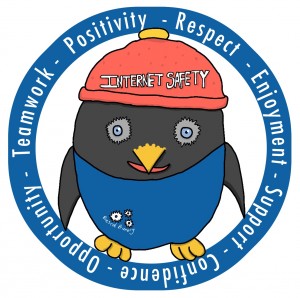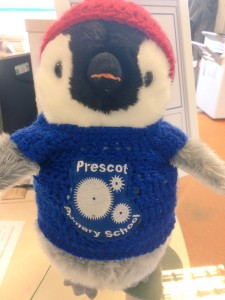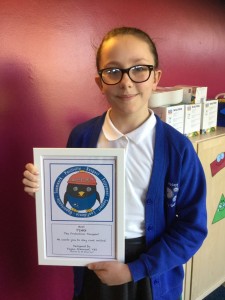As a school that values technology as a tool for teaching and learning, we also recognise the importance of raising awareness and deepening understanding of staying safe online.
Our children use iPads everyday and are encouraged to complete independent research using Safari, communicate via ‘Seesaw’ or ‘Airdrop’ materials immediately to each other.
Online safety is essential and we discuss various aspects of this from an early age, using materials from CEOP (Child Exploitation and Online Protection): CEOP and Safer Internet Day: Safer Internet Day Materials.
Our Digital Leaders have completed work on how we can share key messages with our children and have produced posters and short movies. (To follow when polished!)
We now have a new school mascot that we hope will help to share these messages. PING the Penguin was created by Tegan Atkinson in a Y5 competition. He teaches our children to ‘stay COOL’ on the internet and we hope to develop his role further across our year groups. Watch this space!
Y5 have also worked hard on a ‘Stay safe online’ movie!
Staying safe on-line. from Prescot Primary on Vimeo.
Social media
While we value the transformational qualities of technology on teaching and learning and cherish the connections we have made using social media, we do not promote the independent use of Twitter, Facebook or Instagram to our children until they reach the recommended minimum age of 13.
However, we also understand the pressures placed on parents to allow use of these sites and therefore aim to offer as much support as possible to raise awareness of the dangers of the virtual world and how to keep their children safe.
In addition to the online safety topics we teach across the school, in Y6 we put extra emphasis on staying safe online during the Y6 conferences. These conferences are held in September and July and explore issues from ‘healthy relationships’, ‘changes’ and ‘digital reputations’. Digital literacy plays a significant part in what we do.



